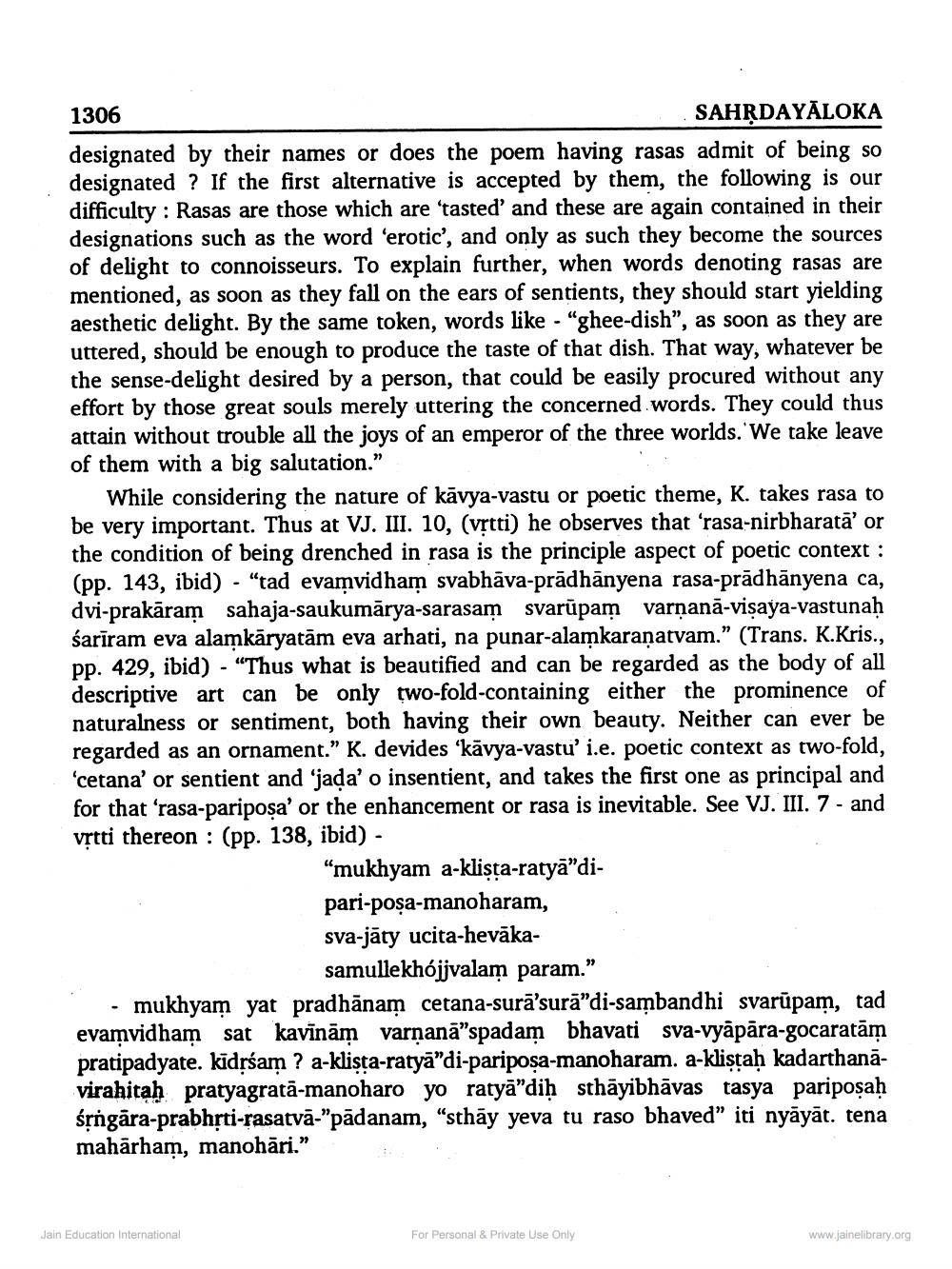________________
1306
SAHRDAYĀLOKA designated by their names or does the poem having rasas admit of being so designated ? If the first alternative is accepted by them, the following is our difficulty : Rasas are those which are 'tasted' and these are again contained in their designations such as the word 'erotic', and only as such they become the sources of delight to connoisseurs. To explain further, when words denotin mentioned, as soon as they fall on the ears of sentients, they should start yielding aesthetic delight. By the same token, words like - "ghee-dish”, as soon as they are uttered, should be enough to produce the taste of that dish. That way, whatever be the sense-delight desired by a person, that could be easily procured without any effort by those great souls merely uttering the concerned words. They could thus attain without trouble all the joys of an emperor of the three worlds.'We take leave of them with a big salutation.”
While considering the nature of kāvya-vastu or poetic theme, K. takes rasa to be very important. Thus at VJ. III. 10, (vrtti) he observes that 'rasa-nirbharatā' or the condition of being drenched in rasa is the principle aspect of poetic context : (pp. 143, ibid) - “tad evamvidham svabhāva-prādhānyena rasa-prādhānyena ca, dvi-prakāram sahaja-saukumārya-sarasam svarūpam varnanā-visaya-vastunaḥ śarīram eva alamkāryatām eva arhati, na punar-alamkaranatvam.” (Trans. K.Kris., pp. 429, ibid) - "Thus what is beautified and can be regarded as the body of all descriptive art can be only two-fold-containing either the prominence of naturalness or sentiment, both having their own beauty. Neither can ever be regarded as an ornament.” K. devides 'kāvya-vastu' i.e. poetic context as two-fold, 'cetana' or sentient and 'jada' o insentient, and takes the first one as principal and for that 'rasa-pariposa' or the enhancement or rasa is inevitable. See VJ. III. 7 - and vrtti thereon : (pp. 138, ibid) -
“mukhyam a-klista-ratyā"dipari-poșa-manoharam, sva-jāty ucita-hevāka
samullekhójjvalam param.” - mukhyam yat pradhānam cetana-surā'surā"di-sambandhi svarūpam, tad evamvidham sat kavīnām varnanā"spadam bhavati sva-vyāpāra-gocaratām pratipadyate. kidịśam ? a-klista-ratyā"di-pariposa-manoharam. a-klistah kadarthanāvirahitah pratyagratā-manoharo yo ratyā"dih sthāyibhāvas tasya pariposah śrngāra-prabhrti-rasatvā-"pādanam, "sthāy yeva tu raso bhaved” iti nyāyāt. tena mahārham, manohāri."
Jain Education International
For Personal & Private Use Only
www.jainelibrary.org




